I went to Mauritania this weekend…
May 19th, 2009 |Actually I just touched the soil with my index finger but it was an adventure nonetheless. The biggest thing that’s happened these past two weeks is me working up enough courage to go swimming in the Senegal River. When med came in during PST to talk about the dangers of living here in Africa, they warned us, among many things, not to swim in the river because one can pick up a chronic disease called schistosomiasis.
Two months ago I vowed to be as diligent as possible with my health safety, meaning I would not swim in the river and I would always bleach my water, but that is just not practical. I went as far as to drink water that had ants floating in it the other day because I was really thirsty. I figured I had two choices: swim in the river and possibly get schisto or not swim in the water and possibly get schisto from accidently stepping in a puddle.
Was I afraid? Yes. I was very afraid. I heard talk of hippos being in the water and that scared me a bit, but I had also heard talk of mermaids lurking around so I wasn’t sure what I could believe anyway. The river is 25 kilometers (that’s 16 miles) away from Thilogne and one must travel through the hot desert to get there. I swam across and touched Mauritania and swam back against the surprisingly strong current. The most frightening part was when I saw what looked to be a big pot in the water only to discover it was a dead dog when I got close to it.
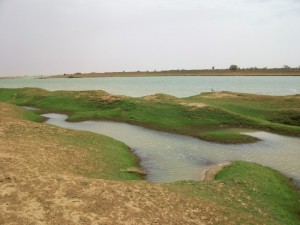
In work related news, I finished a mural about breastfeeding. In Pulaar it reads, “During their first 5 months, babies should eat and drink breast milk only.” I’m currently working on a hand-washing mural because absolutely no one I’ve seen washes their hands with soap before eating. Speaking of eating, the dinner menu at my house now rotates between pasta with onion sauce and potatoes with onion sauce each night.
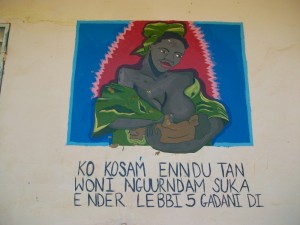
I also spent a couple days at the regional house in Ndioum last week, which was a nice break. We do things there like read, bake, and watch back to back movies. For more pictures, click on “Settling into Thilogne” on the right.
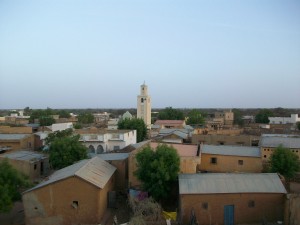
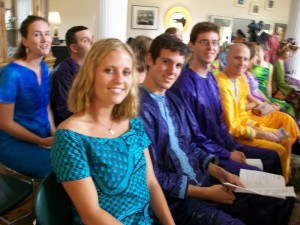
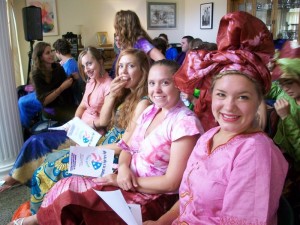
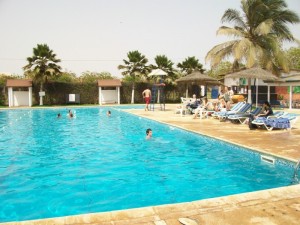
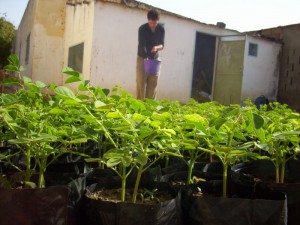
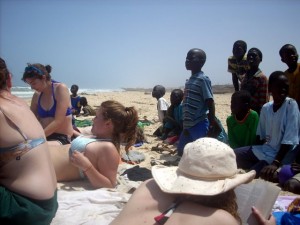
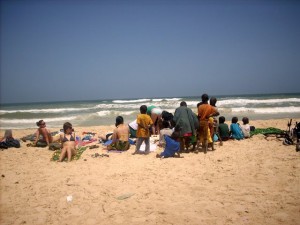
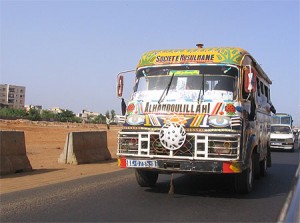
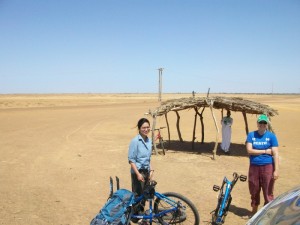
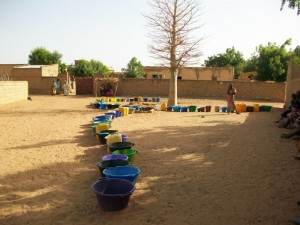
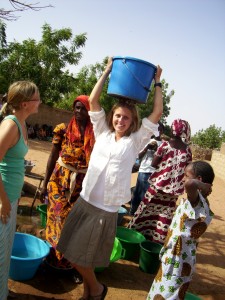
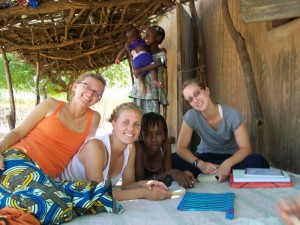
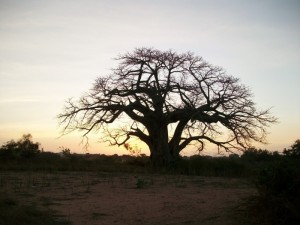
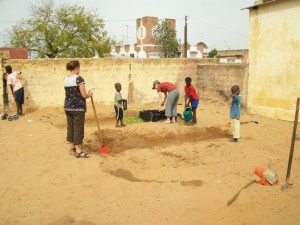

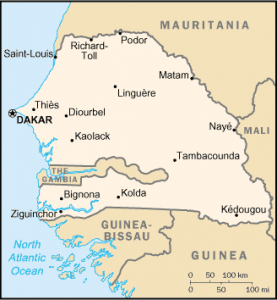
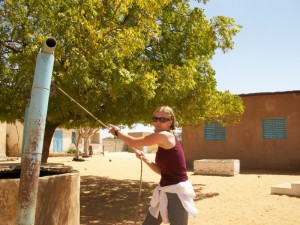
 I have been in Senegal, Africa, now for almost two weeks although it seems impossible that it has been less than a year. The 26 other PCTs (Peace Corps Trainees) and stayed in the city of Thiès (pronounced “chess”) for the first four days at the Peace Corps Training Center, a compound which has been transformed from barracks that housed French soldiers into a peaceful training site. The compound’s high walls and quaint gardens, as well as the calm and quiet atmosphere amidst a loud and bustling city give it the look and feel of a convent, or what I imagine an inner-city convent to be like.
I have been in Senegal, Africa, now for almost two weeks although it seems impossible that it has been less than a year. The 26 other PCTs (Peace Corps Trainees) and stayed in the city of Thiès (pronounced “chess”) for the first four days at the Peace Corps Training Center, a compound which has been transformed from barracks that housed French soldiers into a peaceful training site. The compound’s high walls and quaint gardens, as well as the calm and quiet atmosphere amidst a loud and bustling city give it the look and feel of a convent, or what I imagine an inner-city convent to be like.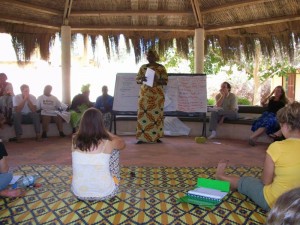
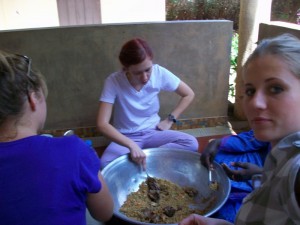
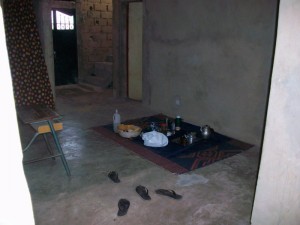
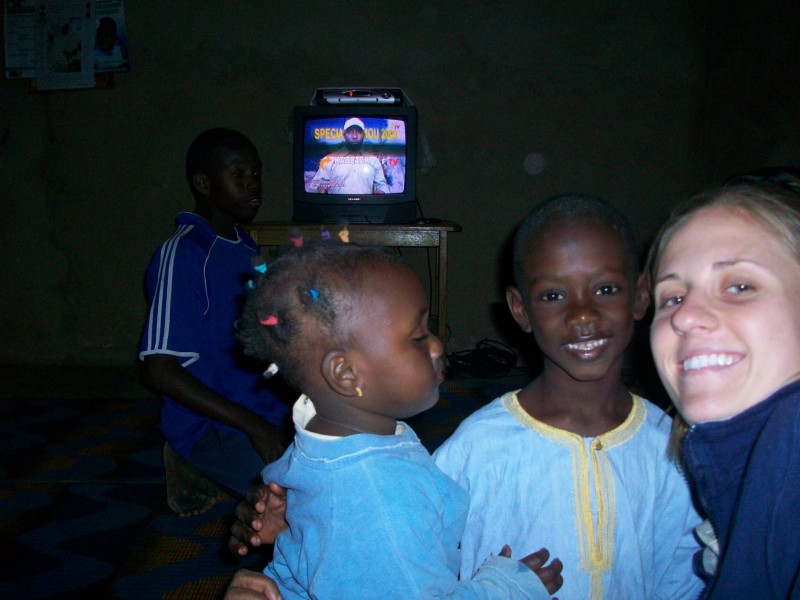
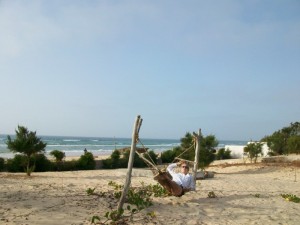
Recent Comments
Welcome home. It was cool following your blog! And everyon...
I can't wait to see you and meet Mon Amie!!! CALL ME SOON...
I like the paintings... I dislike the "antics"... I can't wa...
Hi Erin, sorry to hear about Demba's antics. About them mice...
I forgot to add ~ I hope you find a nice room with icy cold ...